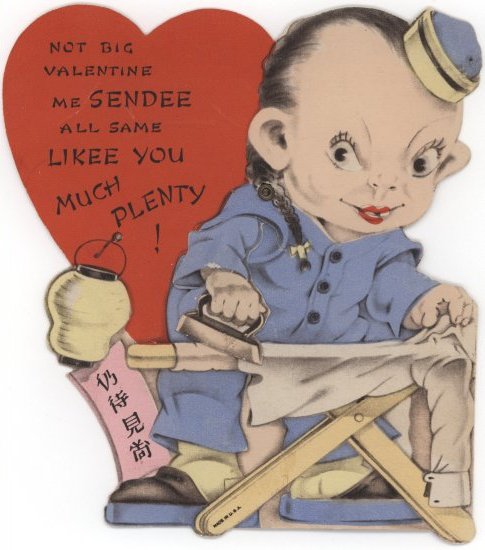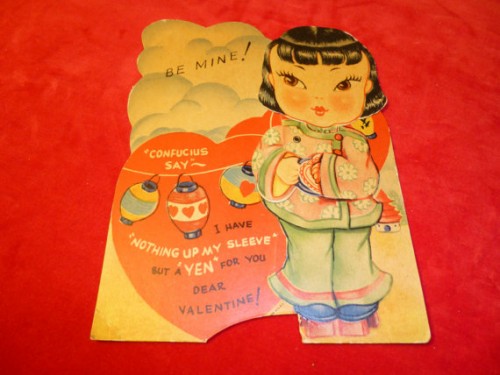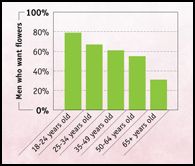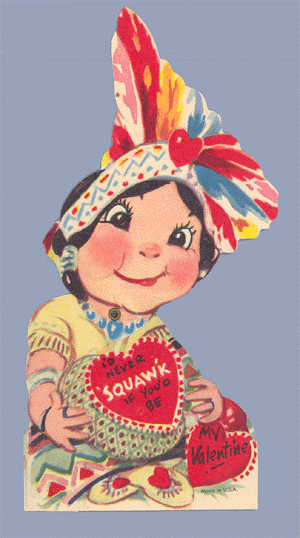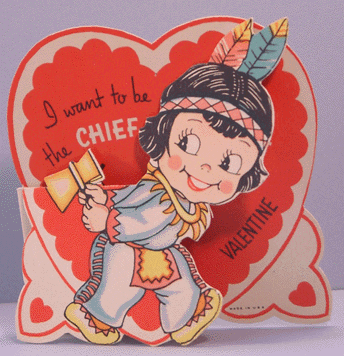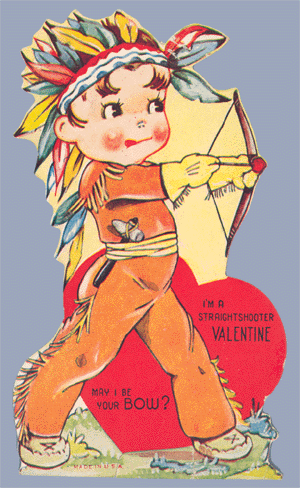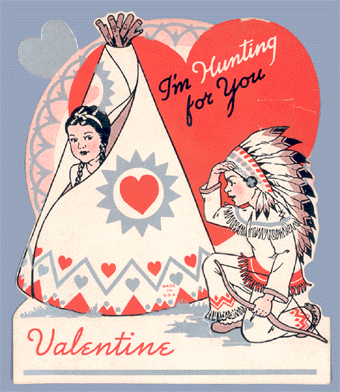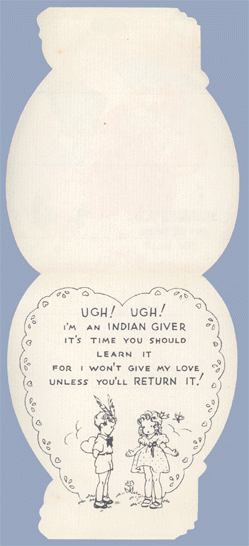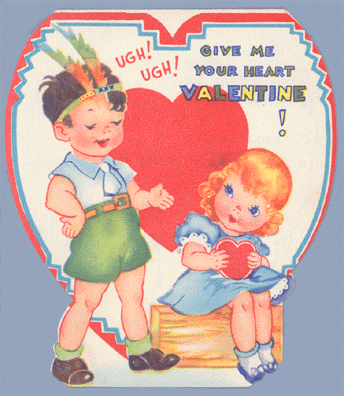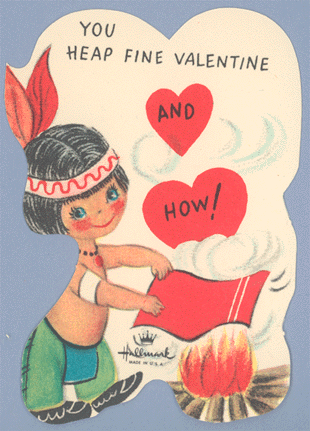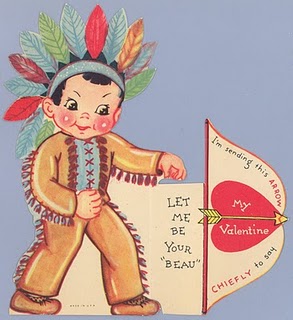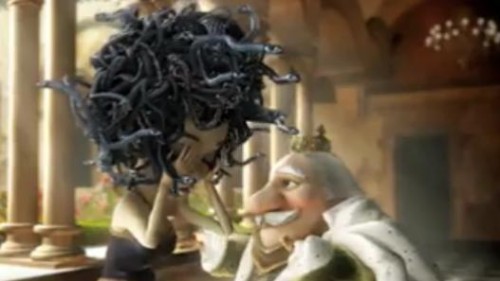We previously posted a series of Valentine’s Day cards featuring Native Americans. They aren’t the only racial group to be caricatured in cards, though. Carrie S. sent in this vintage Valentine, found at Adventures of Accordion Guy in the 21st Century, that presents a stereotyped Asian character (doing laundry even!), complete with mangled English:
I was able to locate more Asian-themed racist vintage Valentine’s Day cards at Buzzfeed:
Gwen Sharp is an associate professor of sociology at Nevada State College. You can follow her on Twitter at @gwensharpnv.

